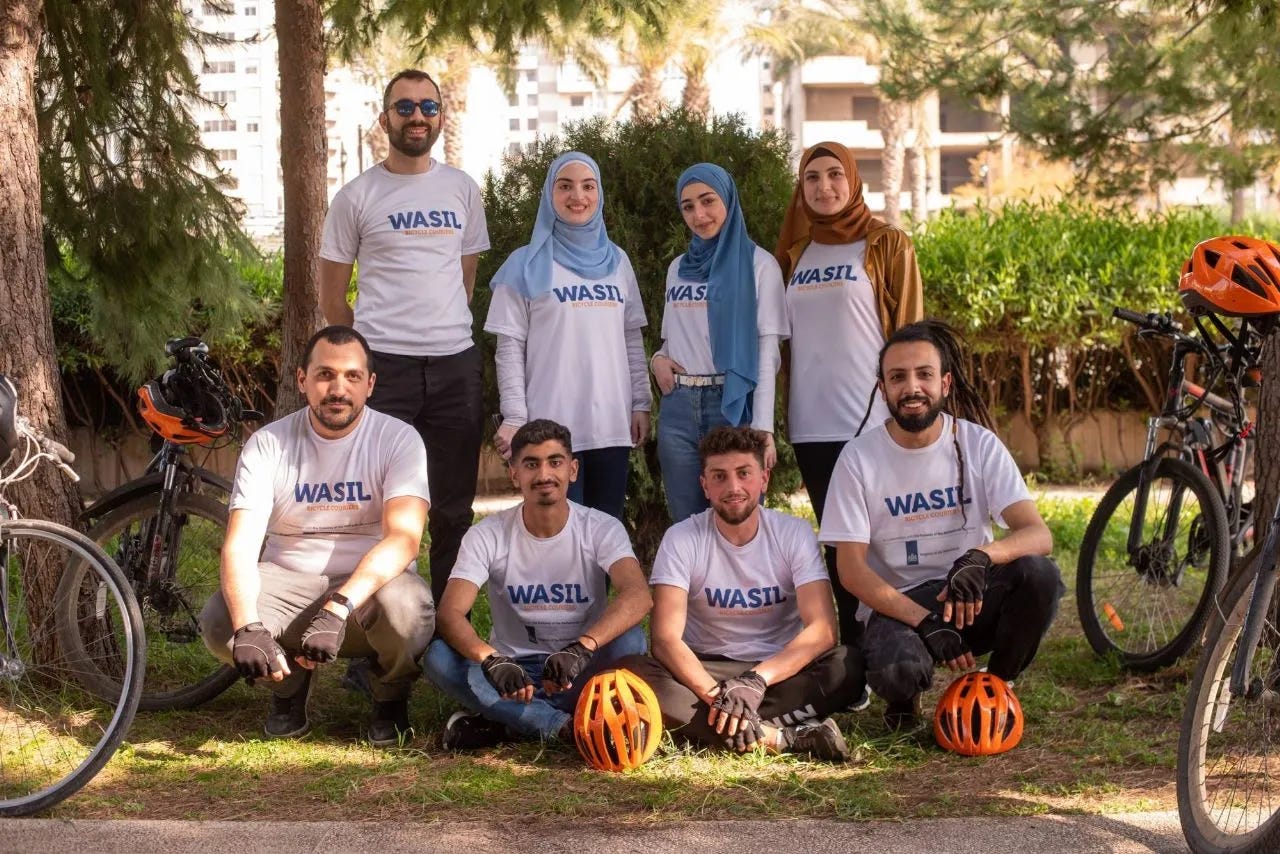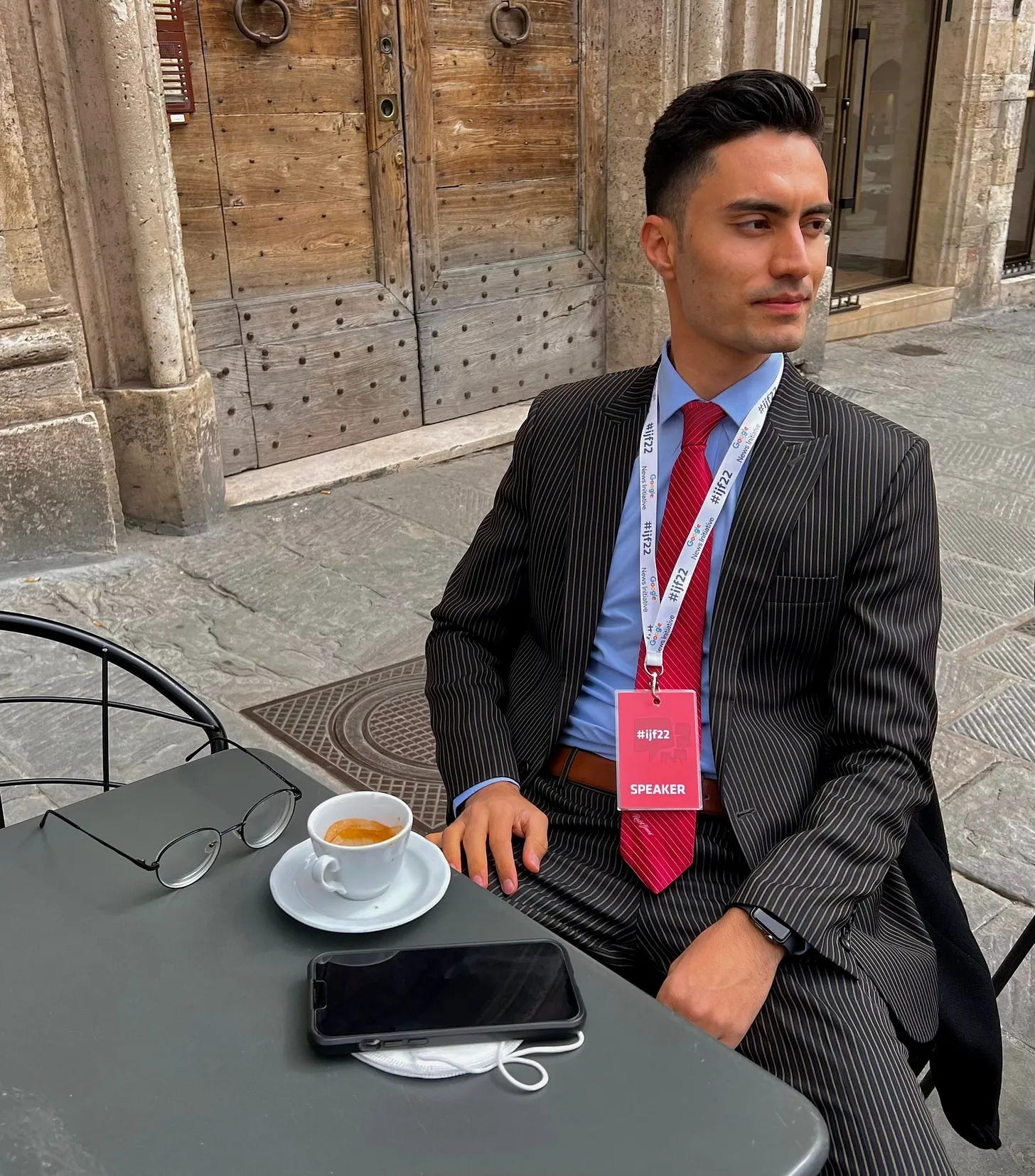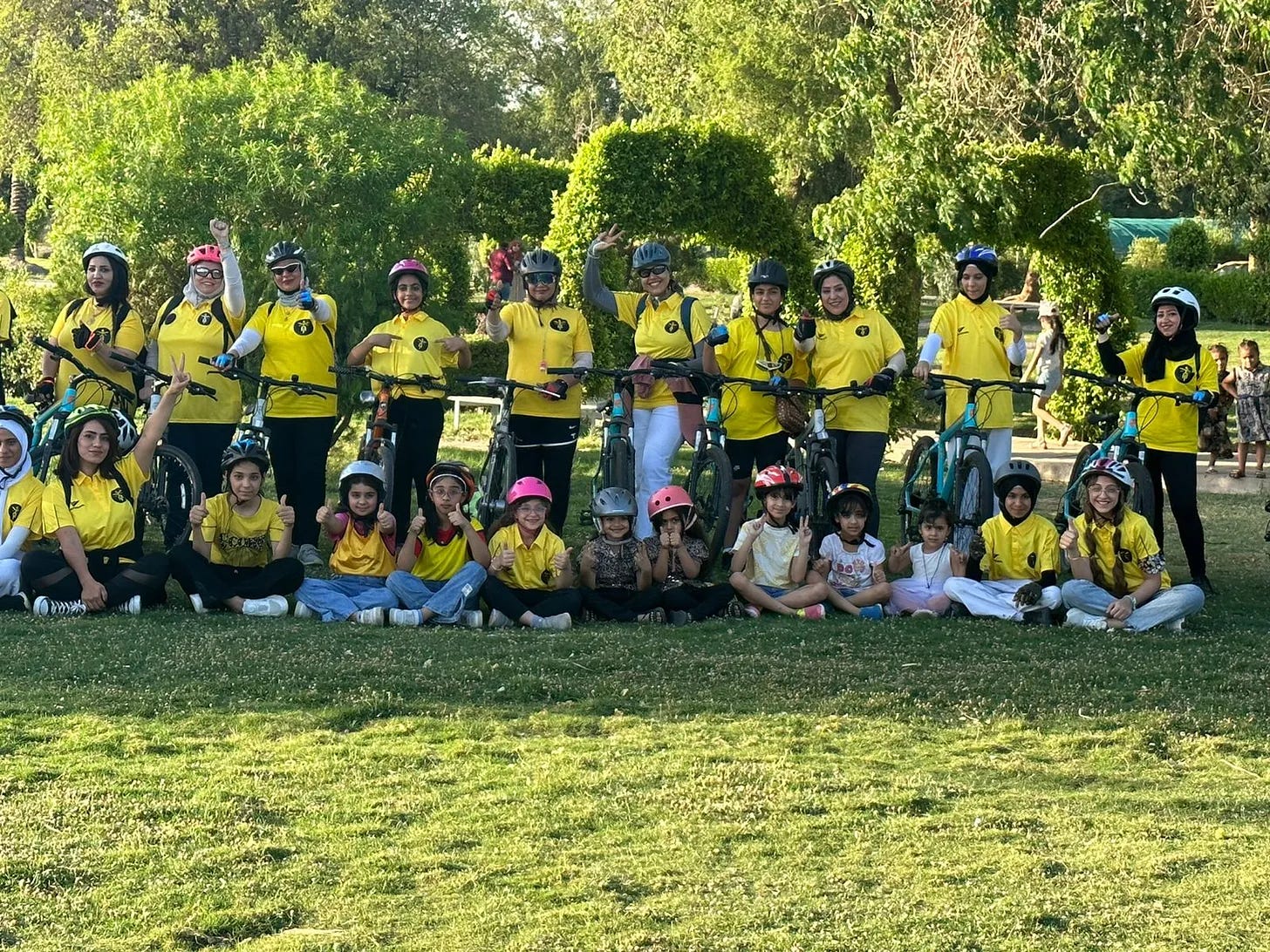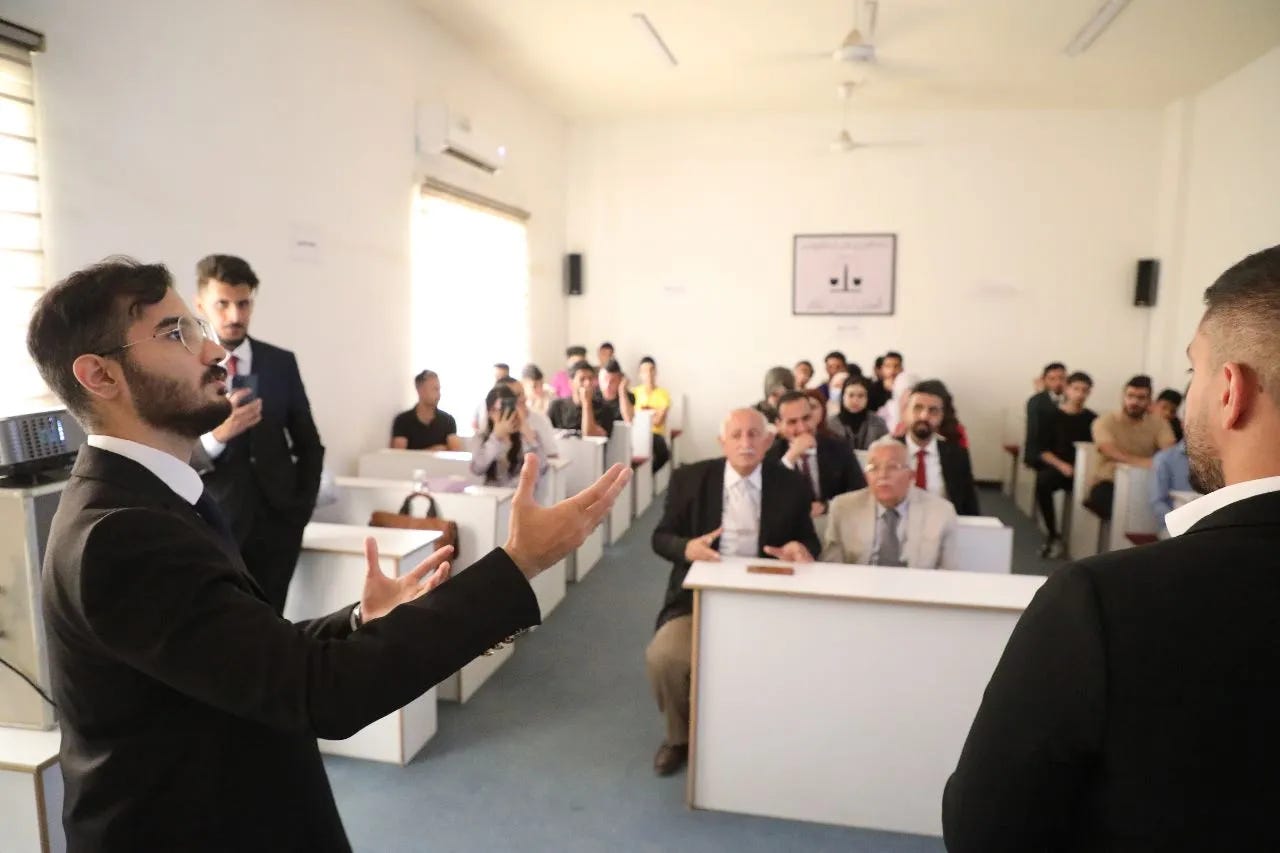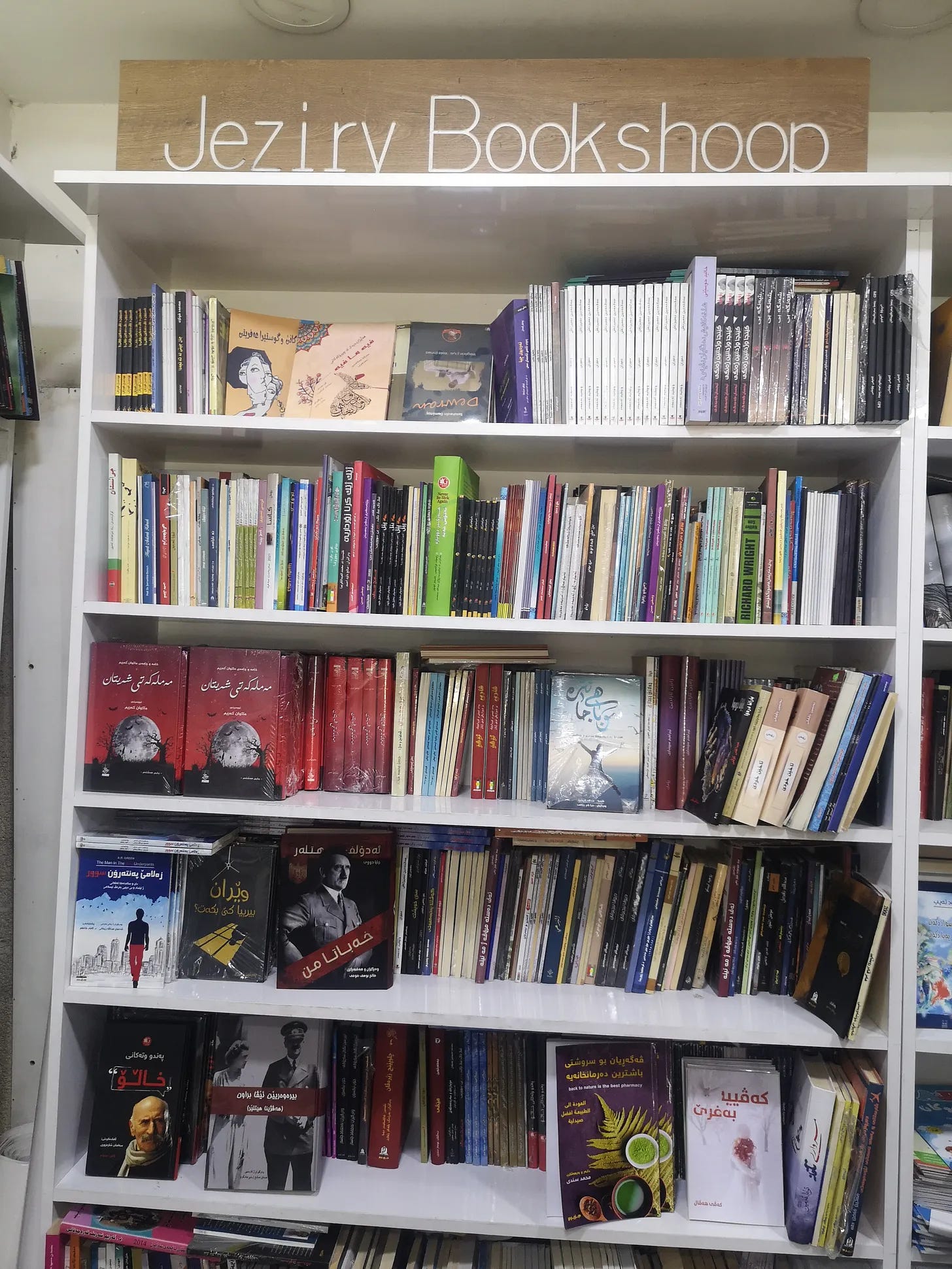IBB Update: Stories of Resilience, Innovation, and the Iraqi Dream.
We unveil the new initiatives breaking boundaries, challenging norms, and championing progress, from green couriers in Lebanon to education in Iraq and the ongoing global fight for gender equality.
Welcome back to the IBB Update!
Welcome to the latest edition of our newsletter! At IBB, our unwavering dedication lies in creating a better world through education, social entrepreneurship, and innovation. This issue highlights the ground-breaking initiatives taking root, like Wasil's green courier service in Lebanon, the establishment of AJEN to support Afghan journalists under Taliban rule, and the inspiring female-led cycling movements in Baghdad and Iraq.
We're also excited to share the transformative work of Nomadx, providing much-needed programming education in Iraq, and the innovative "Our Stories" project fostering unity among the Kurdish community. On a global scale, we're featuring a critical discussion on gender apartheid, a term used to describe systemic discrimination against women in certain regions, and the call for it to be recognized as an international crime.
As we celebrate these achievements, we also echo the need for respectful dialogue and understanding, highlighted by the recent controversy in Sweden regarding the burning of the Quran. We stand firm in our belief that progress is built on respect, pluralism, and constructive engagement, not destructive acts. As we continue our pursuit of justice and positive change, we thank you for being part of this journey with us. Together, we can create a brighter future for all those in the Middle East who share our vision.
80% of every dollar we receive goes directly towards supporting our programs, including Substack subscriptions!
The American Dream vs The Iraqi Dream
Abdo, our Development Manger, has written a moving piece over at the International Correspondent. Despite living away from his homeland, he still cherishes the belief of Iraq being divinely blessed. Prior to Abdo's departure for the States, his uncle, picturing the US as a morally degraded land of excessive consumerism, had expressed his disapproval. However, Abdo, whose view of America had been crafted through the lens of Hollywood, was eager to explore and experience the boundless opportunities that the "American Dream" seemed to promise. Upon stepping foot in New York, Abdo realized that the image his uncle had painted was far from the reality he experienced. He saw a land of hope, where freedom was abundant, and opportunities were plenty.
His belief was strengthened that, given access to information and resources, transformative changes could be achieved in Iraq, similar to what he witnessed in America. Drawing from the essence of the American Dream, the pursuit of happiness, Abdo found his place at IBB. His American journey kindled a vision, an "Iraqi Dream", of a prosperous, peaceful, and stable Iraq with an improved economy, fair political system, accessible healthcare, and quality education. It's a dream of a secure environment where families could flourish. This dream, once thought impossible, seems more achievable now than ever before.
New Innovators
A new courier company named Wasil is promoting the use of bicycles in the city of Tripoli, Lebanon. The company, founded by Natheer Halawani, employs couriers like Nour Lachin, who finds freedom in cycling despite the city's dense traffic and limited bike lanes. The shift towards cycling is driven by necessity, due to the economic crisis, and the desire for equality, with women cyclists challenging traditional norms. Wasil aims to enhance the cycling environment, planning to collaborate with NGOs to install bike racks on buses, host cycling events, and has already conducted around 1,800 deliveries, saving significant carbon emissions.
Shafi Karimi, an award-winning Afghan journalist who fled to France after being targeted by ISIS, has established The Afghan Journalists in Exile Network (AJEN) to support journalists working under Taliban rule. AJEN aims to connect journalists inside and outside Afghanistan to provide a platform for reports that cannot be published under Taliban restrictions. Since the Taliban took power in August 2021, media freedoms have been significantly curtailed, and the majority of journalists and media workers have lost their jobs. AJEN will provide financial support, build international connections, and continue to disseminate news from Afghanistan that might otherwise be censored or neglected.
Suad El Gohary, a 53-year-old journalist in Baghdad, is leading a women's cycling movement in Iraq, challenging conservative cultural norms and advocating for women's rights to cycle freely. After founding the female cycling team, Palm Watan, during the pandemic, El Gohary began to see increased interest from women across the country, desiring to join the team and challenge societal restrictions. Despite facing physical harassment and the controversy surrounding women's cycling in Iraq, El Gohary remains steadfast in promoting the sport, citing personal health benefits and the potential for societal change. With funding from Ideas Beyond Borders, she plans to expand the cycling initiative to Mosul, providing new bicycles and training children in hopes of fostering gender equality through shared childhood experiences.
Abdullah Nabeel, a digital programmer in Iraq, noticed a lack of practical programming skills and knowledge among Iraqis despite increased interest during the pandemic. He founded Nomadx, an organization dedicated to providing comprehensive and quality programming education, addressing the low quality of knowledge in the Iraqi market. Since 2020, Nomadx has conducted five free boot camps and over 50 workshops, reaching about 2,000 individuals. With a grant from Ideas Beyond Borders, Nabeel aims to further support participants' career paths, expand course topics, and enhance computer literacy across different age groups in Iraq.
In parts of Kurdistan, linguistic differences and the political affiliations they imply cause divisions among the Kurdish community. Megan Kelly, in an effort to bridge these divides, has launched "Our Stories", a literary project funded by an Innovation Hub grant, producing a library of audiobooks from works by authors across Kurdistan in various local languages. By creating an audiobook library, Kelly hopes to support the wider creative community, providing opportunities to voice actors while also facilitating greater access to Kurdish dialects for language learners. The broader goal of the project is to foster a greater understanding among Kurdish speakers, dissolve divisions, and encourage communities to embrace demographic changes.
The International Correspondent
Faisal has been publishing some diverse and interesting perspectives over at The International Correspondent.
Gissou Nia has written about the growing call to codify the crime of 'gender apartheid', a term used by Afghan and Iranian women's rights defenders to describe the systemic segregation and subjugation they face. The crime of gender apartheid focuses on the specific harms faced by women in these regions, and aims to compel global leaders and institutions to reassess their dealings with the nations where such discrimination occurs. In a related event, the UN Special Rapporteur on human rights in Afghanistan and the UN Working Group on discrimination against women and girls, along with several countries, have endorsed this framework.
Zach van Meter has written another article for the International Correspondent on Iran's mandatory hijab requirement for women being enforced using advanced surveillance technology, a move that has reinvigorated concerns over privacy, human rights, and the rise of a "Chinese-led New World Order". The enforcement follows a period of defiance and civil disobedience in response to the controversial death of Mahsa Amini, who was detained for alleged hijab violation. Despite brutal suppression, resistance remains high among the Iranian populace, signaling a widening divide between the state and its citizens. Moreover, Iran's adoption of invasive surveillance technology from China, which has been exported to several nations despite concerns over privacy rights, highlights the pressing need for a global dialogue on regulating surveillance technology and safeguarding human rights in the digital age.
Finally, Faisal has shared his thoughts regarding Sweden’s recent permission of the burning of the Quran, an act that was roundly condemned by Muslim-majority countries as it took place during Eid al-Adha, a significant Islamic holiday. Two men, including an Iraqi refugee, were involved in the incident, risking Sweden's NATO bid which requires support from Muslim-majority countries such as Turkey. Despite the actions being protected under free speech, the author criticizes this event as counterproductive and disrespectful, especially towards efforts to promote pluralism, free speech, and expression in the Middle East. The author encourages direct, respectful engagement and building bridges rather than destructive acts which can potentially harm alliances and the potential for positive change.




